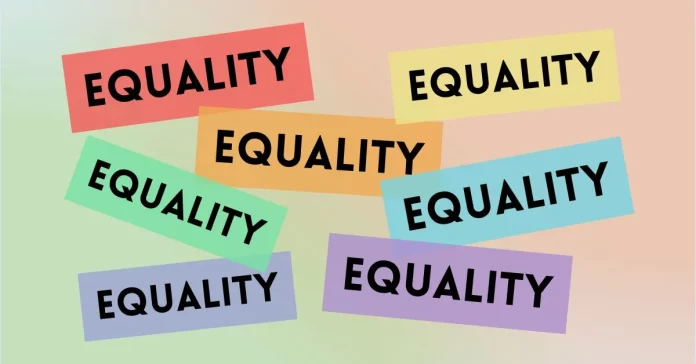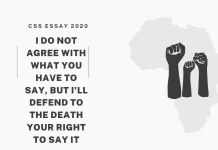Thesis statement
While the idea of universal human equality is a noble aspiration, it remains elusive and utopic due to inherent societal complexities and deep-rooted disparities.
Introduction
Universal human equality is a principle that has long been a driving force behind societal progress and justice. The idea that all individuals, regardless of their background, should be treated with equal respect and dignity is deeply ingrained in our collective consciousness. However, achieving universal human equality remains an elusive goal. Despite our aspirations, the complexities of societal dynamics and the deep-rooted disparities that persist make it challenging to attain this utopic ideal. In this essay, we will explore the multifaceted nature of universal human equality, the challenges it faces, and the ongoing efforts to promote a more equitable world.
Exposition: Understanding Universal Human Equality
A. Defining Universal Human Equality
Universal human equality refers to the concept that every person, irrespective of their race, ethnicity, gender, religion, or social status, possesses an inherent worth and should be treated with fairness and justice. It encompasses the belief that everyone should have equal access to opportunities, resources, and basic human rights.
B. The Complexity of Societal Dynamics
Achieving universal human equality is hindered by the intricate interplay of various factors within societies. Societies are diverse, with different cultural, economic, and political structures. These complexities create barriers to equality, making it a complex and challenging goal to attain.
Argumentation: Challenges to Universal Human Equality
A. Socioeconomic Inequalities
Socioeconomic inequalities pose a significant challenge to achieving universal human equality. Disparities in wealth distribution, income gaps, and unequal access to resources create a perpetuating cycle of disadvantage. The lack of economic opportunities and social mobility further exacerbates these inequalities, leading to a widening gap between the rich and the poor.
B. Political and Legal Systems
Political and legal systems play a crucial role in shaping the level of equality within societies. However, power imbalances, unequal representation, and discriminatory laws can perpetuate inequality. The influence of vested interests and systemic biases often hinder progress toward achieving universal human equality.
C. Social and Cultural Factors
Deep-seated social and cultural factors also contribute to the challenges in attaining universal human equality. Prejudice, stereotypes, and discrimination based on factors such as race, gender, and ethnicity create barriers and perpetuate inequality. Cultural norms and social hierarchies further reinforce these disparities, making it difficult to achieve true equality.
Description: The Reality of Inequality in Different Spheres
A. Economic Inequality and Poverty
Economic inequality is a stark reality in many societies. Statistical data reveals significant disparities in income distribution, with a small fraction of the population holding a disproportionate share of wealth. Poverty remains a pervasive issue, depriving individuals of basic necessities and opportunities for advancement.
B. Gender Inequality
Gender inequality persists globally, despite significant progress in recent years. Gender wage gaps, limited representation of women in leadership positions, and gender-based violence are some of the challenges that hinder universal human equality. Efforts to achieve gender parity face resistance and deeply entrenched cultural norms.
C. Racial and Ethnic Inequalities
Racial and ethnic inequalities continue to be a source of social injustice. Systemic racism, discrimination, and racial disparities in areas such as education, employment, and criminal justice reveal the persistent challenges faced by marginalized communities. Achieving racial and ethnic equality requires dismantling structural barriers and promoting inclusivity.
Narration: Striving for Progress and Social Justice
A. Addressing Socioeconomic Inequalities
Reducing socioeconomic inequalities requires a multi-faceted approach. Wealth redistribution, progressive taxation, inclusive economic policies, and social safety nets can help bridge the gap between the rich and the poor. Additionally, investing in education, vocational training, and skill development can provide opportunities for upward mobility and empower individuals from disadvantaged backgrounds.
B. Legal Reforms and Policy Interventions
Promoting universal human equality necessitates reforming legal and policy frameworks. Anti-discrimination laws, affirmative action, and equal representation in decision-making processes are crucial steps toward achieving a more just society. Social movements, activism, and grassroots initiatives play a vital role in advocating for change and holding institutions accountable.
C. Promoting Social and Cultural Transformation
Transforming social and cultural norms is essential for eradicating inequality. Embracing diversity, promoting inclusive practices, and challenging stereotypes can help create a more equitable society. Education, media representation, and community engagement are powerful tools for fostering understanding, empathy, and dismantling social barriers.
Conclusion
In conclusion, universal human equality remains an ambitious and utopic ideal that faces numerous challenges. Socioeconomic disparities, political and legal systems, and social and cultural factors contribute to the complexity of achieving equality. However, ongoing efforts to address these challenges provide hope for progress. By addressing socioeconomic inequalities, reforming legal frameworks, and promoting social and cultural transformation, we can move closer to realizing universal human equality. While utopia may remain out of reach, our collective commitment to justice and fairness can lead us toward a more inclusive and equitable world.
















